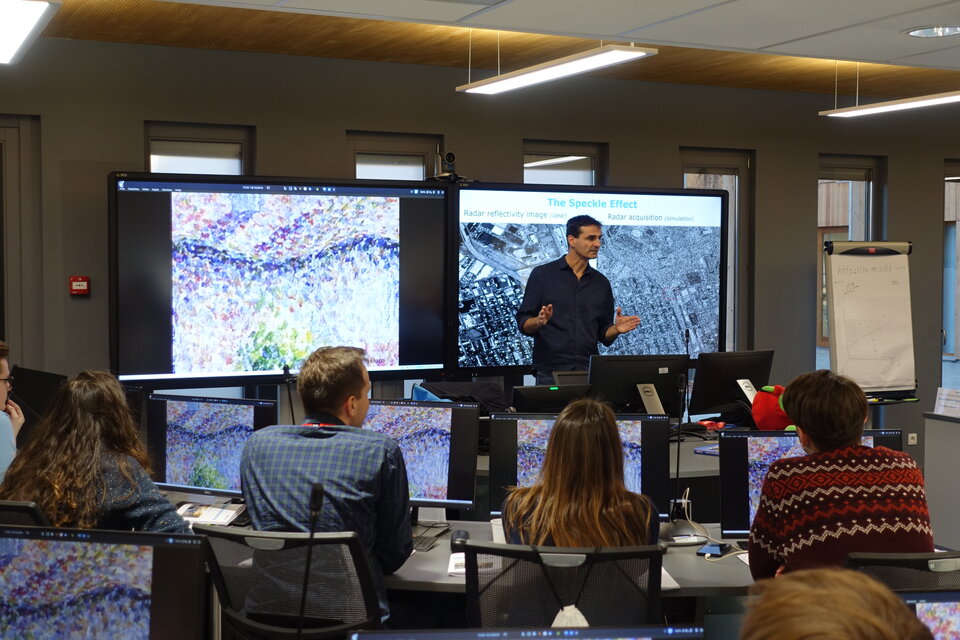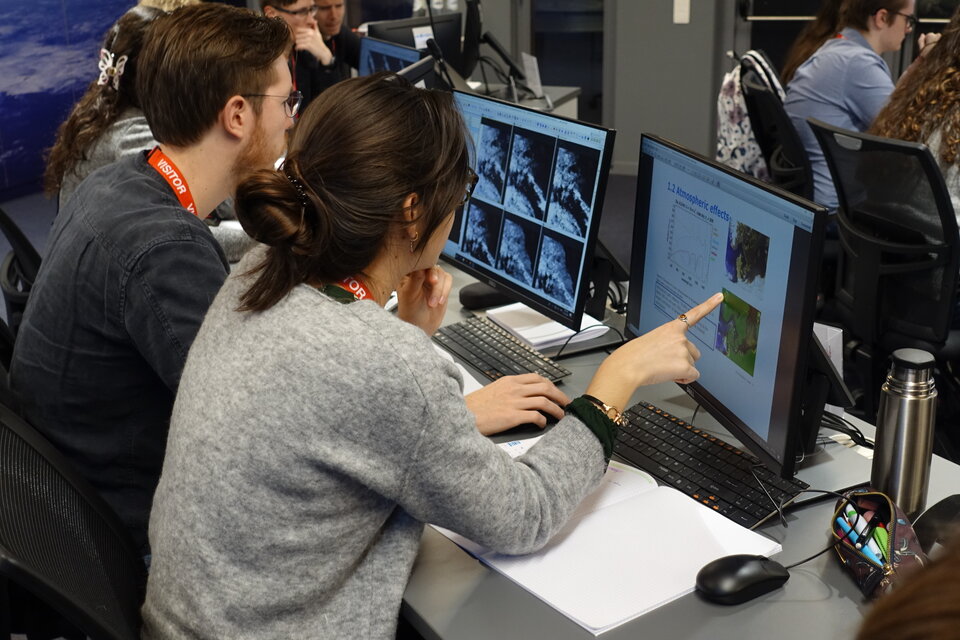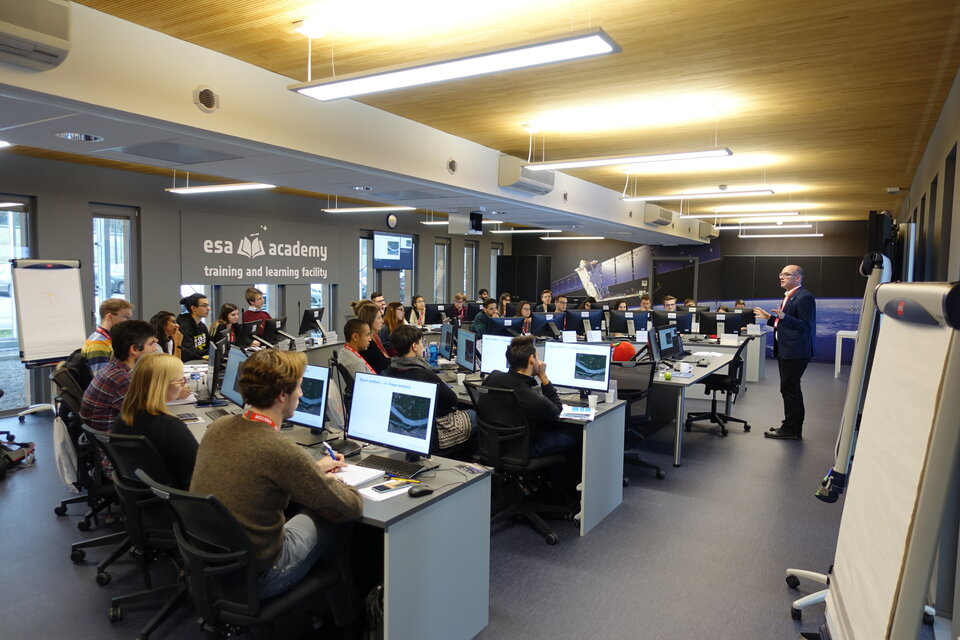ESA Academy’s Earth Observation Remote Sensing Workshop is now open for applications
In brief
In 2022, ESA Academy’s Earth Observation Remote Sensing Workshop is returning to the ESA Education Training Centre. With the support of the Science, Applications & Climate Department, this course offers to Master and PhD students the opportunity to learn about the importance of remote sensing as well as ESA’s Earth Observation satellite missions.
In-depth
ESA is dedicated to Earth Observation (EO) satellite missions, being the driving force behind the Sentinels missions, among many others, such as the small Proba-V one. EO satellites are vital for supporting the daily lives of people all around the globe, and will be at the forefront of efforts to confront future challenges. The remote sensing data they generate enables rapid responses to natural disasters such as flooding; the monitoring of vegetation and agriculture; optimisation of water usage; methods of preserving resources; better understanding of urban development; monitoring meteorological and environmental parameters essential to understanding the evolution of Earth’s global-scale dynamics... the list goes on! ESA is running this Earth Observation Remote Sensing Workshop to support future generations of EO scientists.

The Workshop will be held from the 5 to 9 December 2022 in ESA Academy’s Training & Learning Facility (TLF) located in ESEC-Galaxia, Belgium. During these five days, university students will become acquainted with the basics of Remote Sensing (RS), along with an overview of ESA’s EO satellite missions. Students will also learn about the science of radar and optical remote sensing, as well as data fusion. Delivered by EO experts from ESA, academic institutions and industry, emphasis will be given to gaining practical skills and putting them to use through group exercises using actual remote sensing tools.
Upon completion of the Workshop, students will be evaluated via an online questionnaire and will receive a certificate of participation as well as a course transcript, allowing them to request ECTS credit(s) from their respective universities.
Preliminary schedule
| Day 1 |
Introduction to Earth Observation Missions at ESA Basics of Remote Sensing Exercise 1: Image Visualization and Analysis |
| Day 2 |
Synthetic Aperture Radar Processing and Analysis of Multi-sensor Synthetic Aperture Radar (SAR) time-series for land Applications Exercise 2: Analysis of Radar Remote Sensing Images |
| Day 3 |
Optical Remote Sensing Introduction Bio-Geophysical Parameter Retrieval for Ocean Applications Bio-geophysical Parameter Retrieval for Land Applications Exercise 3: Analysis of Optical Remote Sensing Images |
| Day 4 |
Introduction to Thermal Infrared Remote Sensing Radar and Optical Remote Sensing, Summary EO Processing Workflow & Application Exercise 4: Thermal Infrared RS Exercise 5: Radar and Optical RS |
| Day 5 |
Spatial Image Analysis Exercise 6: Geographic Information System (GIS) Applications Evaluation |
Who can apply?

Applications are open to students enrolled in university who fulfil the following criteria:
- aged minimum 18 years old;
- have no or limited professional experience in relevant scientific, engineering, or other space-related topics;
- be a citizen of an ESA Member State, Canada, Latvia, Lithuania, Malta, Slovakia and Slovenia;
- be enrolled as a Master or PhD student in a university for the academic year 2022-2023;
- be studying an engineering or science subject.
The selected students will be sponsored by ESA to cover accommodation and meals, as well as up to 300 Euros for travelling to Belgium.
How to apply?

- Fill in the application form;
- Upload a motivation letter (PDF, maximum 1 page, no images);
- Upload a CV (PDF, Europass format, maximum 2 pages, no images);
- Upload a formal recommendation letter (PDF, maximum 1 page, including signature, no images) from a university professor or academic supervisor of current university (if it is not possible to receive the recommendation letter from your referee, please ask them to send a recommendation email to tlp@esa.int before the application deadline);
- Upload a copy of your academic records (PDF).
All answers and documents should be in English (except academic records if not available).
The deadline for applications is 26 September 2022 23:59 CEST
For more information, please contact tlp @ esa.int.


